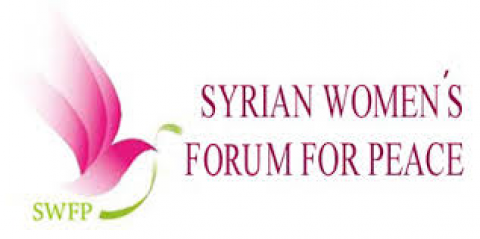
Marie Dennis, co-president of Pax Christi International, contributed the following reflection which was published in the March-April 2014 NewsNotes.
On February 22, the UN Security Council unanimously passed Resolution 2139 demanding "that all parties, in particular the Syrian authorities, promptly allow rapid, safe and unhindered humanitarian access for UN humanitarian agencies and their implementing partners, including across conflict lines and across borders."
In the resolution, the Council strongly condemned the widespread violations of human rights and international humanitarian law by Syrian authorities, and urged all parties involved in the conflict to lift sieges of populated areas, including in Aleppo, Damascus and rural Damascus, and Homs. They underscored the importance of medical neutrality and demanded the demilitarization of medical facilities, schools and other civilian facilities.
The Security Council members requested the Secretary-General to report on the implementation of the resolution by all parties in Syria in 30 days and every 30 days thereafter, and said "upon receipt of the Secretary-General’s report, [the Security Council] expresses its intent to take further steps in the case of non-compliance with this resolution."
According to the UN, over 100,000 people have been killed and an estimated nine million others driven from their homes since the conflict erupted between Syrian President Bashar al-Assad and various groups seeking his ouster nearly three years ago. More than 2.4 million refugees are registered in the region: some 932,000 in Lebanon; 574,000 in Jordan; some 613,000 in Turkey; 223,000 in Iraq; and about 134,000 in Egypt.
In their resolution, the Security Council emphasized that the humanitarian situation will continue to deteriorate in the absence of a political solution and expressed support for the UN-sponsored direct talks between government and opposition representatives.
Despite reports that negotiations had all but collapsed, Lakhdar Brahimi, the UN-Arab League Joint Special Representative, said the parties had agreed that a new round of talks would focus on violence and terrorism, a transitional governing body, national institutions and national reconciliation.
In addition to meeting the massive humanitarian needs of the Syrian people, keeping peace talks alive is crucial or the spiral of violence will almost inevitably worsen. Negotiations are repeatedly undercut by the continued supply of weapons to all sides, permitting those who refuse to negotiate to keep fighting. Many Syrians committed to nonviolence and organizations working in solidarity with them, including Pax Christi International, are pleading for an immediate end to the delivery of arms, ammunition and weapons parts to combatants in Syria and an immediate end to international support for foreign fighters operating in Syria.
Negotiations that include the explicit participation of delegations representing Syrian women as mandated by UNSC Resolution 1325 and subsequent declarations are also more likely to be successful, recognizing the important role of women in the prevention and resolution of conflicts, including in peace negotiations themselves.
On January 6, in collaboration with a group of independent Syrian women and the Syrian Women’s Forum for Peace, more than 60 Syrian women from a number of Syrian districts and governorates met in Damascus to discuss the role of women in peacemaking and to articulate the priorities of Syrian women for the Geneva II conference.
In preparation, the Syrian Women’s Forum for Peace had organized three workshops in Sweida, Hasakah, and Lattakia and distributed a questionnaire on Syrian women’s priorities for the Geneva II Conference to more than 6,000 women in all parts of Syria. The Syrian Women’s Forum for Peace, formed in October 2012, is working for a peaceful political transition to democracy in Syria and building a broad- based coalition of Syrian women across the political spectrum.
The January gathering resulted in the Syrian Women’s Charter, which calls for an end to the flow of weapons and militants into Syria, access for aid to communities in need, and a lifting of economic sanctions on Syria: We … are a voice of Syrian women nationwide, a reflection of a mosaic of Syrian society, narrators of suffering and pain experienced by Syria, and evidence of the sustainability and life of Syrian society. … We must emphasize the unity of the country and reject any political settlement made on an ethnic, sectarian or denominational basis … We aspire to build a future Syrian state that will honor its citizens and their basic human rights … We emphasize the need to involve women from inside Syria in negotiating processes as representatives of the larger Syrian fabric. Women must have an equal role to men in advocating for their needs and priorities, and for designing the future Syrian state …
For more information go here. Read the most recent statement on Syria from Pax Christi International here.
